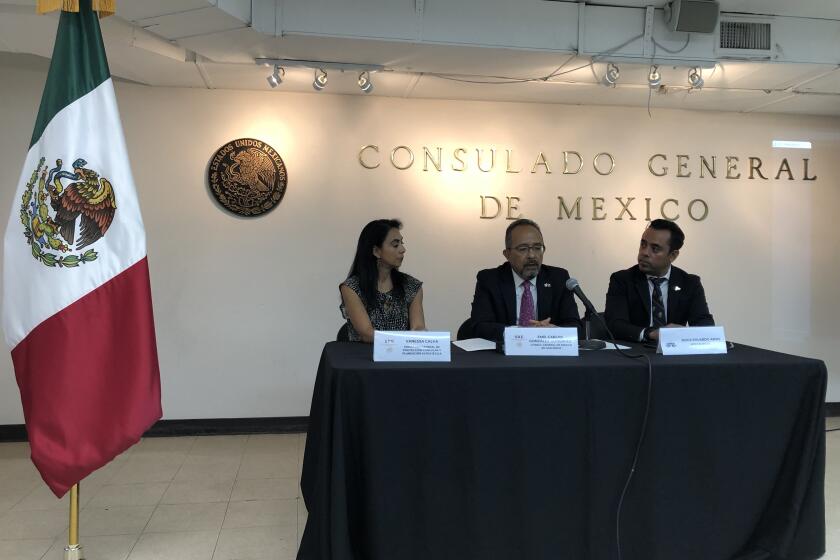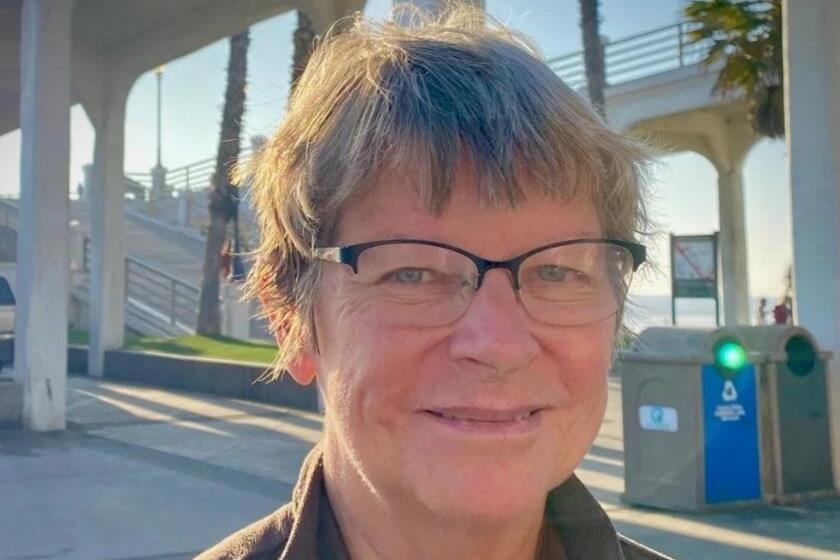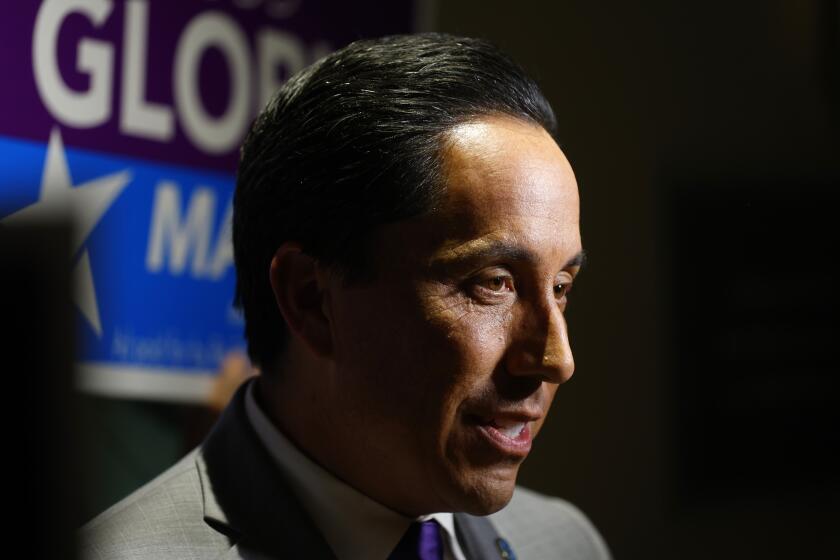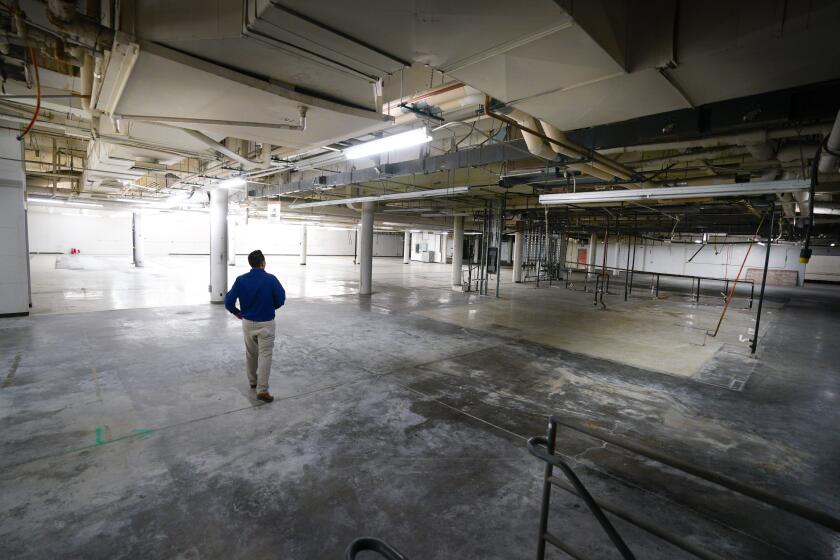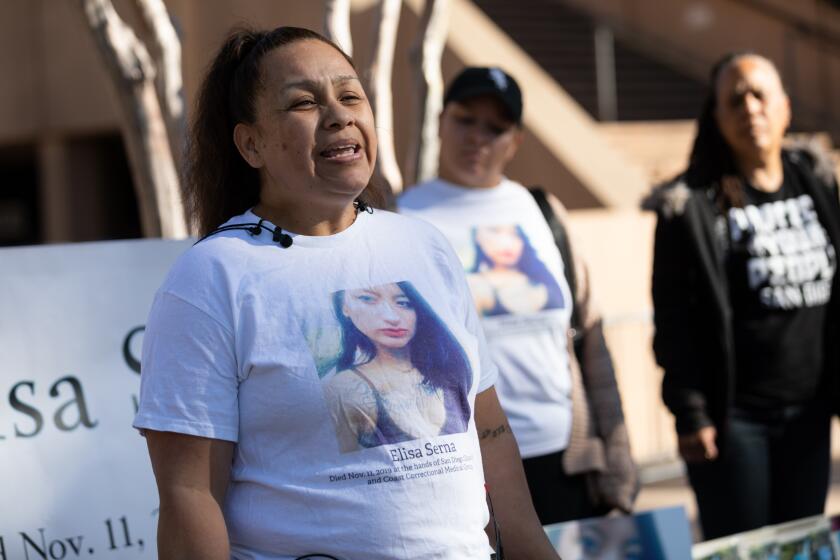State says San Pasqual Academy must close by October
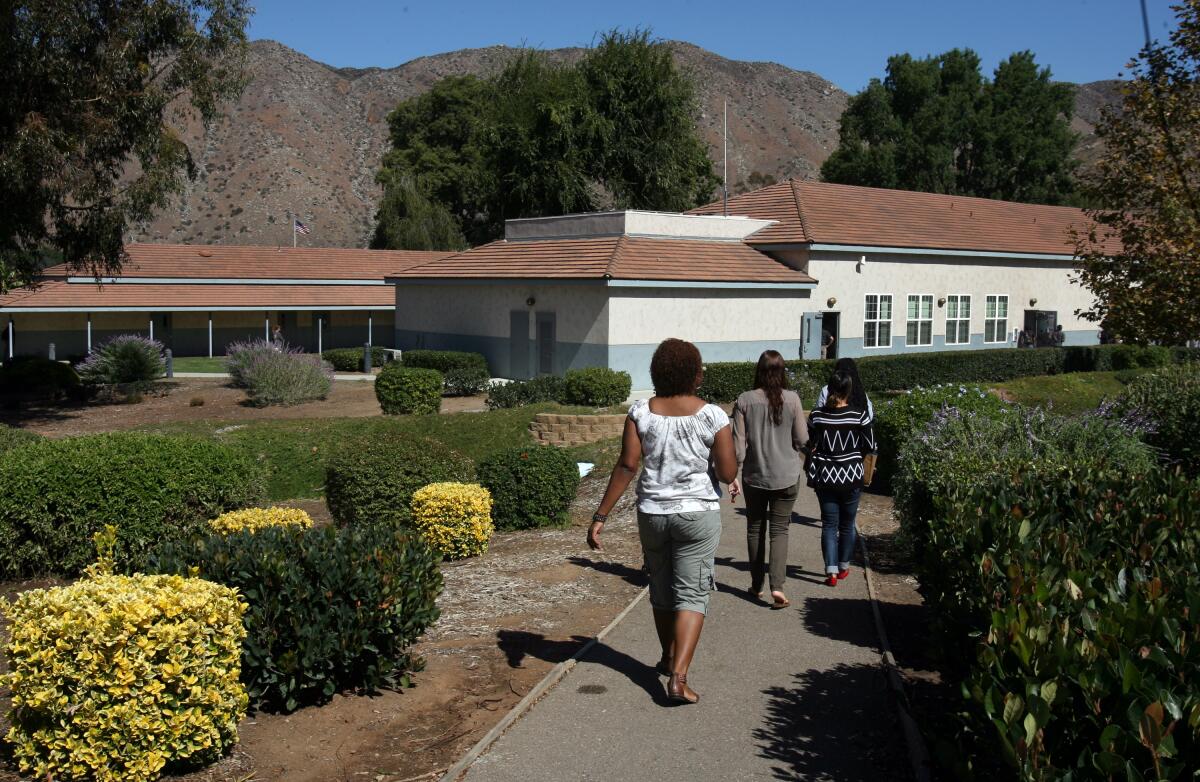
After years of declining enrollment and recent changes in state and federal law, California regulators have notified San Diego County child-welfare officials that they must close San Pasqual Academy, the first-in-the-nation residential home for dependents of the Juvenile Court.
In an undated letter, the Department of Social Services told the county it would be ending the three-year pilot program that has allowed the 20-year-old institution to continue to operate. The facility is scheduled to shut down by October.
The decision by state regulators comes as the total number of children in foster care and in the boarding school for foster children continues to decline. As of Feb. 1, there were 69 students at the Escondido school, down from 139 in April 2011, according to county data.
“Given the overall reduction in the county’s foster care population and the very limited number of appropriate referrals, it appears that continuation of the pilot is no longer viable or prudent,” the letter said.
The pilot program was slated to expire at the end of the year, but the state exercised its option to close early, on Oct. 1, when a federal law that discourages use of funding for congregate living in foster care facilities will take effect in California, the letter said.
State regulators said conversations with the county had determined federal funding for the school would run out when the federal law was implemented. According to county data, the funding made up 34 percent of the school’s $14 million annual budget this year.
A California law passed in 2015 already ended the use of licensed group homes for foster children and requires states to place most children with families instead. But the school received an exception and was allowed to operate through a pilot program.
State regulators said in the letter that they notified the county this month to give officials time to move students to other homes, ideally with families.
Laws passed in the last 10 years and “policy established through lawsuits” have shifted requirements for keeping children safe with families — their own or foster families, according to a planning document provided by county Board of Supervisors Chairman Nathan Fletcher’s office. The changes have greatly reduced the number of San Diego County children in foster care.
In 2002, for example, there were more than 6,600 children in the local foster-care system. Earlier this month, the number was 2,150.
The loss of San Pasqual Academy will be a heavy blow to county officials and local stakeholders, who have taken pride in the academy’s success in preparing foster children to live independently.
Fletcher said the closing of San Pasqual could bring new opportunities.
“San Pasqual Academy existed to support our foster kids, and though the physical building may have to close, our commitment to helping these youth remains just as strong,” Fletcher said.
The planning document provided by Fletcher’s office proposed using the estimated $6.4 million the county is expected to save to benefit a larger number of children and help transform the child-protection bureaucracy into a “child well-being system” that better serves families.
The plan looks at ways to “take what we have learned at San Pasqual Academy and apply it to all youth, ages 12 and older, in care supporting efforts to utilize foster care as a support for families, not a substitute.”
For example, the document said, the money could be used to expand the county’s partnership with the county Office of Education to serve more of the system’s 868 foster children 12 or older.
Other possibilities include providing independent living skills to children 12 or older, and expanding therapeutic foster care and intensive services for foster homes. The plan also proposed increased support for foster families through Grossmont College and perhaps scholarships or life skills coaching for young adults who have aged out of the system.
Students will begin to be relocated as soon as next month.
Proposed next steps to plan for the end of San Pasqual Academy include meetings with stakeholders, advisory board members and students at the school and the establishment of a planning committee to study the pending closure.
Get Essential San Diego, weekday mornings
Get top headlines from the Union-Tribune in your inbox weekday mornings, including top news, local, sports, business, entertainment and opinion.
You may occasionally receive promotional content from the San Diego Union-Tribune.



